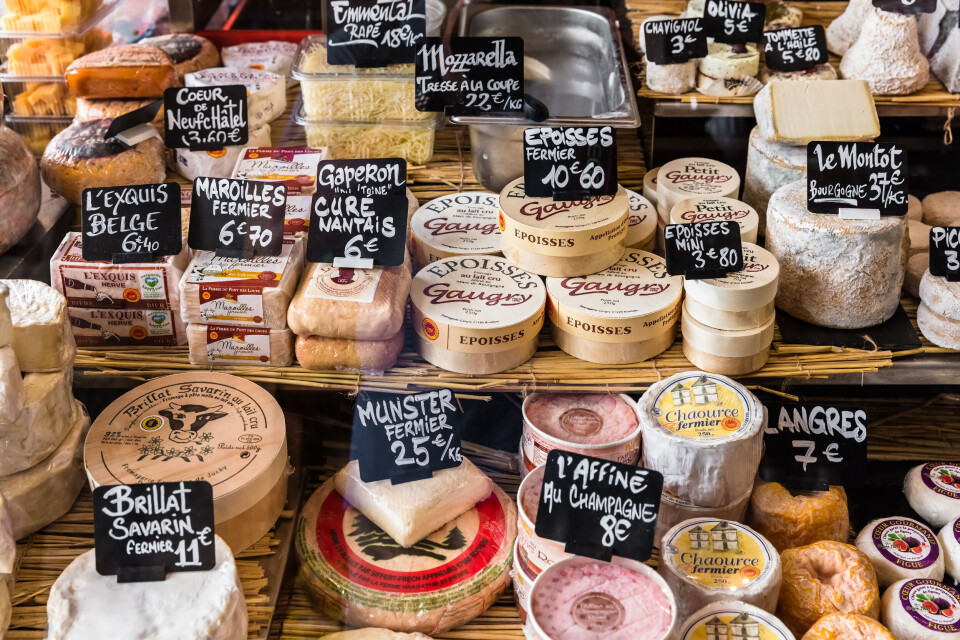-
How accurate are time estimates for French hiking paths?
Mathematical formula is basis for sign figures
-
My French cleaner is too familiar with me
Columnist Cynthia Spillman advises a reader on setting boundaries
-
Travelling during a residency card renewal: how can I show I am exempt from EES?
Tens of thousands of ‘Brexit’ cards are nearing expiry this year
Camembert, Roquefort, Brie: Can I bring French cheeses into the US?
We look at the rules around taking such gifts on stateside trips

Reader question: We’re visiting family in the US this summer. Can we take French cheese for them?
Firstly, the most important thing to remember when bringing food products back to the US is that you must declare anything you bring in, even if only in small quantities.
Even if a customs official says you must throw away the product because it is prohibited, you will not face any penalties if you declare it in advance.
If you do not declare the products you are returning with, you could face a fine of up to $10,000 (€9,157), or other penalties.
Even though the US is known in France for not allowing unpasteurised cheeses on supermarket shelves, rules are looser for bringing cheese back into the country for your own consumption.
Currently, the US Department of Agriculture (USDA) deems France as being free of Foot and Mouth Disease. This reduces the overall number of restrictions on what dairy products (among others) can be imported from France.
This means that pretty much all cheese products can be brought back if they remain unopened, including:
- Hard and soft cheeses – as long as they do not pour like a liquid (the USDA lists ricotta and cottage cheese as examples) or contain any meat within them
- Liquid milk and milk products for infants or small children (in small quantities)
- Products containing powdered or dry milk (in small quantities, if labelled correctly)
- Commercially packaged and labelled, cooked, shelf-stable, fully finished food items containing dairy in unopened packages
As long as your product fits into one of the categories above you should be safe bringing it in. A label with the maker’s address, or the receipt for the cheese, are useful as proof of provenance, if requested.
So, even though it is prohibited to make Brie or Camembert in the US (because they use raw, or unpasteurised milk), it is legal to bring them into the country.
The same applies to goat’s cheese – provided it does not come from a country with Foot and Mouth disease. It does not need a specific import permit but needs to be declared on your customs form.
Products are declared via a customs declaration form 6059B. You should also be able to ask for a copy of this at check in or on the plane.
Read more: Make sense of duty-free shopping in France
Other tips
Below are some other tips for you to factor in, if you decide to bring cheese back from France to the US.
In case of queries you can point to this website with the USDA’s rules, to show the cheese you are bringing back is allowed to enter the country. Due to the US’s rules on unpasteurised cheeses, it can come as a surprise even to some border guards that certain cheeses are allowed in.
You are only allowed to bring the cheese back for personal consumption (including sharing with friends and family), and it is prohibited to resell any products in the US.
If you are bringing back excessive amounts, deemed too much for personal consumption by border guards, you may have it confiscated.
It is best to put cheese in hold, rather than cabin, luggage because a plane’s cargo hold is cooler than the passenger section.
In some cases, bringing soft cheeses onto an aeroplane in your cabin baggage is banned because it is classified as a liquid by some airlines.
If possible, ask for your cheese to be shrink-wrapped (sous vide) to maintain its freshness when purchasing it.
Related articles
French gruyere-makers angry as court approves US version
Can I bring plants into France for garden at my second home?
























